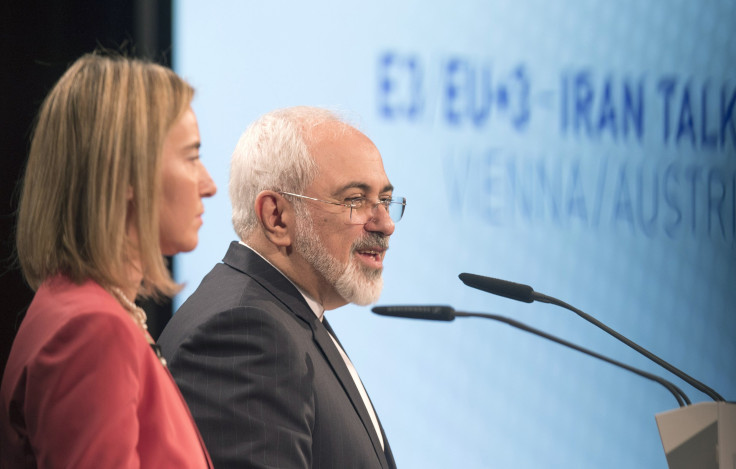Iran Nuclear Deal Reached In Vienna: Reports

Update as of 5:00 a.m. EDT: "We are reaching an agreement that is not perfect for anybody ... but now we are starting a new chapter of hope," Iran’s foreign minister Mohammad Javad Zarif said, hailing the deal as a "win-win" solution during a short press conference in Vienna, before heading into a final meeting. Another press conference is scheduled after the meeting.
Update as of 4:30 a.m. EDT: Yukiya Amano, head of the International Atomic Energy Agency -- the U.N.'s nuclear watchdog -- said that a "roadmap" has been signed to make an assessment of issues relating to military dimensions of Iran's nuclear program by the end of the year.
#IAEA Statement/Road-map for Clarification of Past/Present Outstanding Issues on #Iran's #Nuclear Program https://t.co/Qak8Bg3HLn #IranTalks
— IAEA (@iaeaorg) July 14, 2015"This is a significant step forward toward clarifying outstanding issues regarding Iran's nuclear program," Amano said.
However, access to Iran's Parchin military site -- located about 19 miles southeast of Tehran -- which has been repeatedly sought by the IAEA, is part of a separate “arrangement,” Amano said.
Just now, Iran and @iaeaorg agree to accelerate cooperation with aim to fully resolve all prior issues. #IranTalks pic.twitter.com/MjtKsfCvsO
— Hassan Rouhani (@HassanRouhani) July 14, 2015Meanwhile, Israeli Prime Minister Benjamin Netanyahu denounced the deal, terming it a "historic mistake" that would allow Iran to "fuel its terror machine."
Original story:
After over two weeks of negotiations and several unmet deadlines, Iran and six major world powers -- the P5+1 -- have reached a deal on the Middle Eastern nation’s nuclear program, according to media reports Tuesday, citing Western and Iranian diplomats.
Details that have now started emerging suggest that a United Nations arms embargo imposed on Iran in 2006 will remain in place for five years. The agreement, which aims to limit Iran's nuclear work for more than a decade, in exchange for the gradual suspension of crippling sanctions, also allows international inspectors "managed access" to Iran's military sites, the Guardian reported.
“All the hard work has paid off and we sealed a deal. God bless our people,” an Iranian diplomat, speaking on the condition of anonymity, told Reuters.
Details of the deal, which would grant relief to Iran from Western sanctions, in exchange for curbs on its nuclear program, are likely to be announced in the coming hours after a final meeting in Vienna. According to Reuters, if Iran doesn't comply with the provisions of the deal, sanctions would be imposed again within 65 days, in a component of the deal termed as the "snapback" plan.
According to the Associated Press (AP), which cited an unnamed diplomat, the deal includes a compromise on the issue of international inspectors being allowed to visit Iran’s military sites -- a key sticking point in the protracted negotiations. What this compromise is, however, is not yet clear.
AP also reported that under the deal, the Iranian government would have the right to challenge the request for United Nations access to its military sites, following which an arbitration board composed of Iran and the six world powers that negotiated with it would decide on the issue.
© Copyright IBTimes 2024. All rights reserved.






















